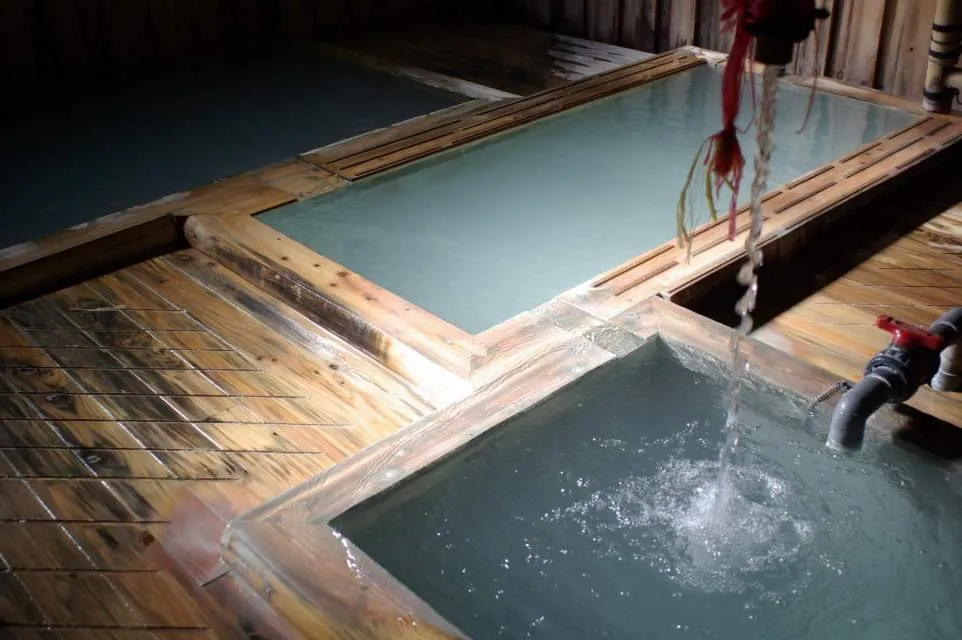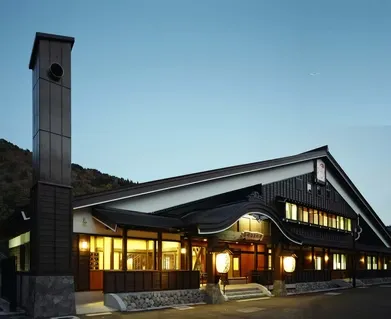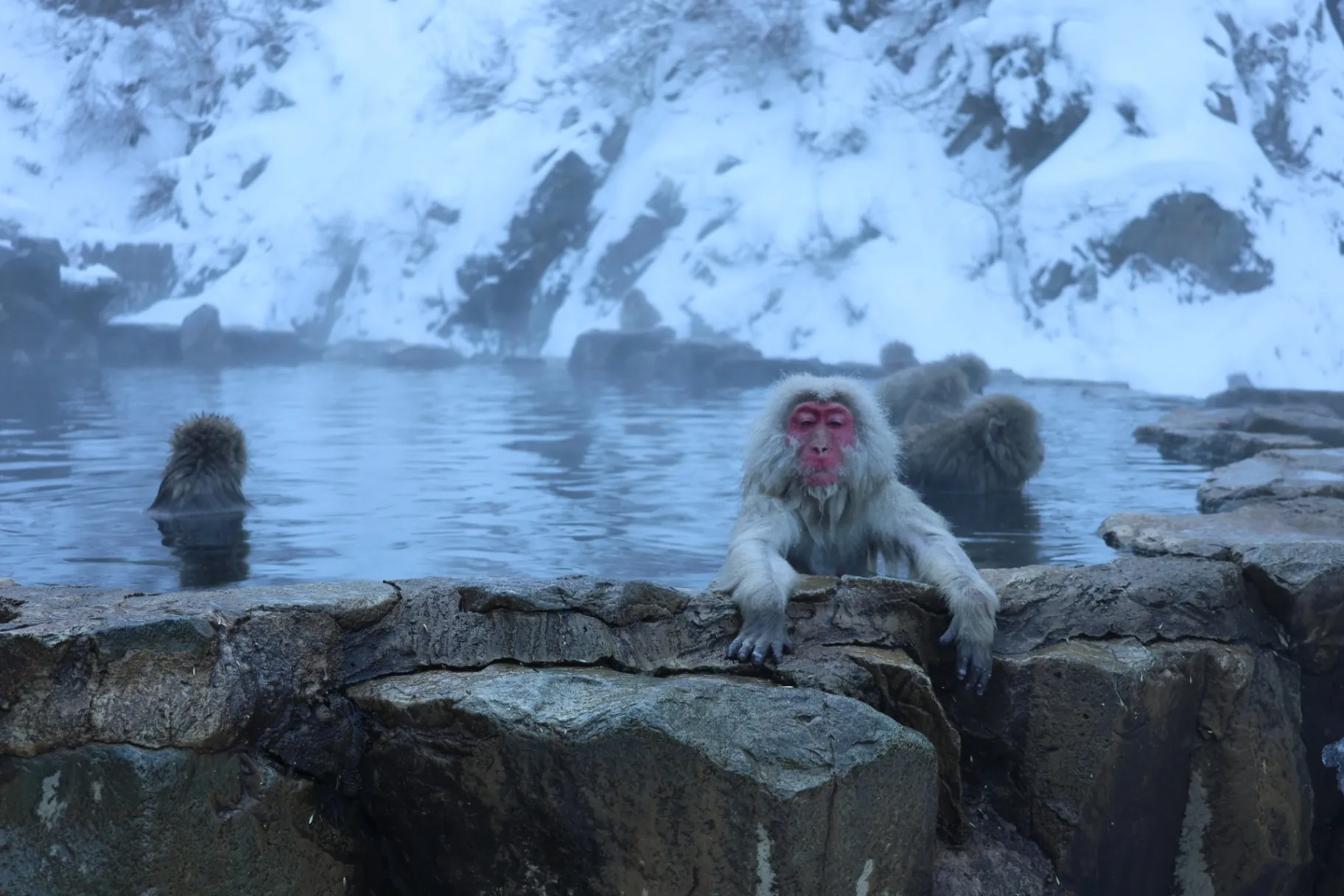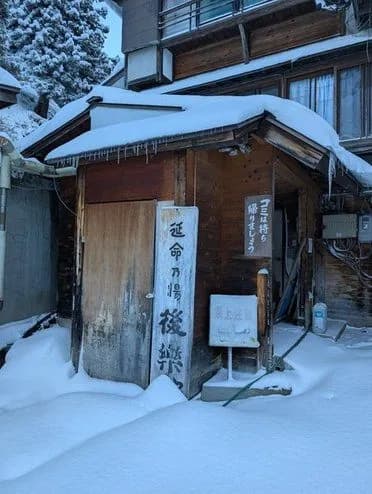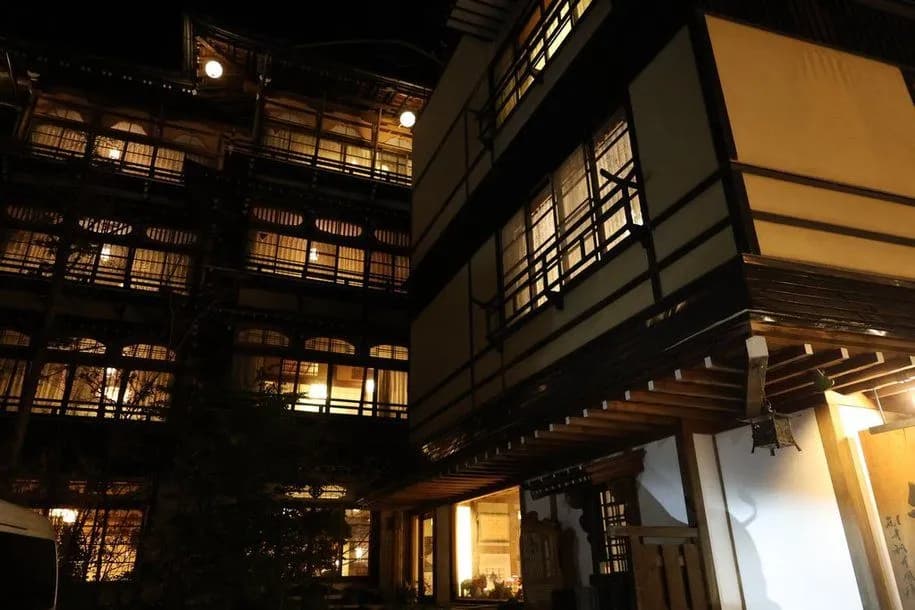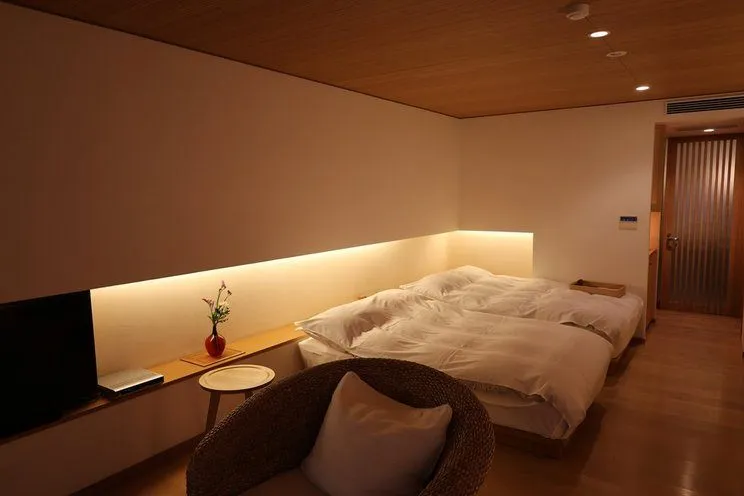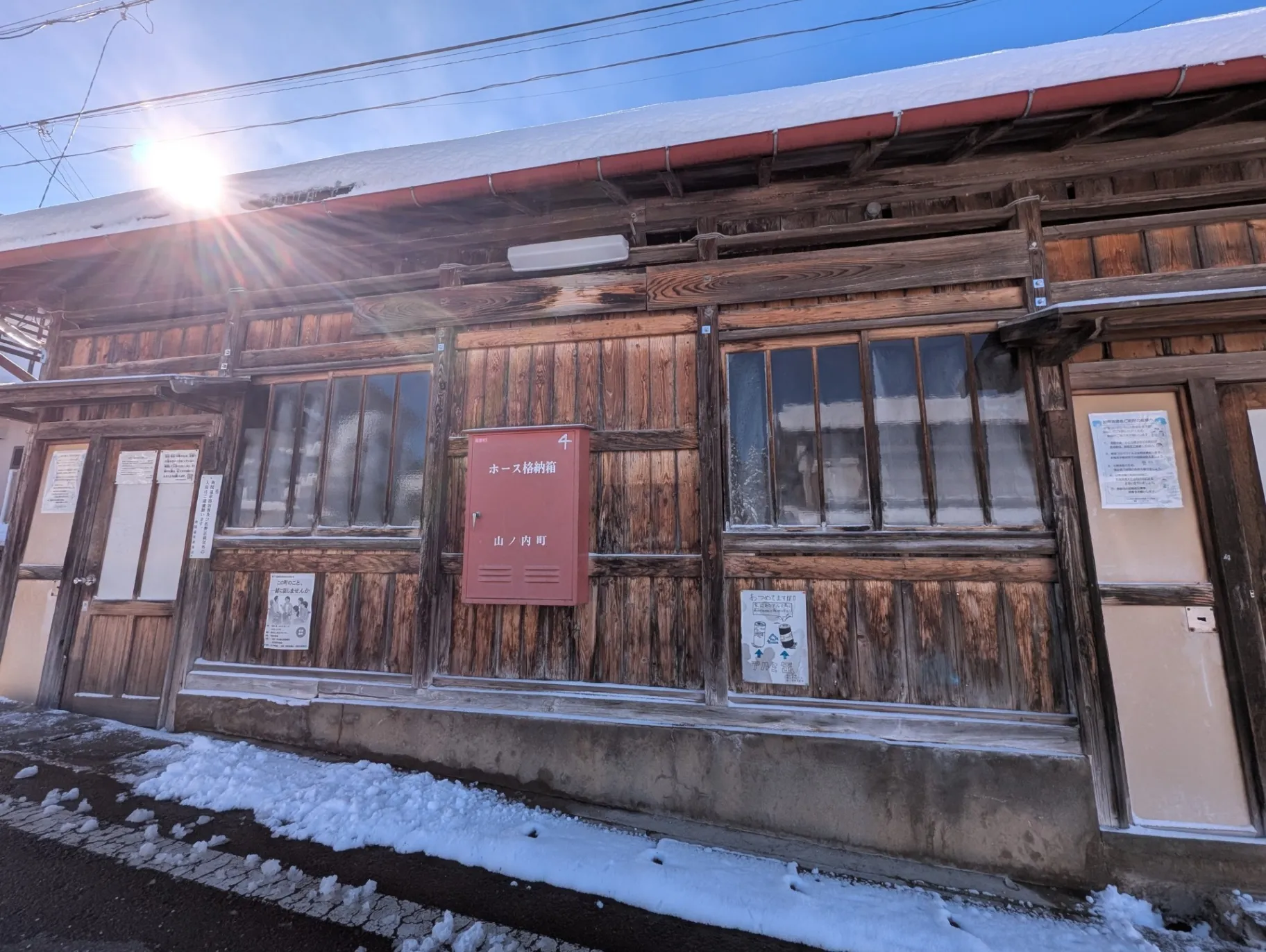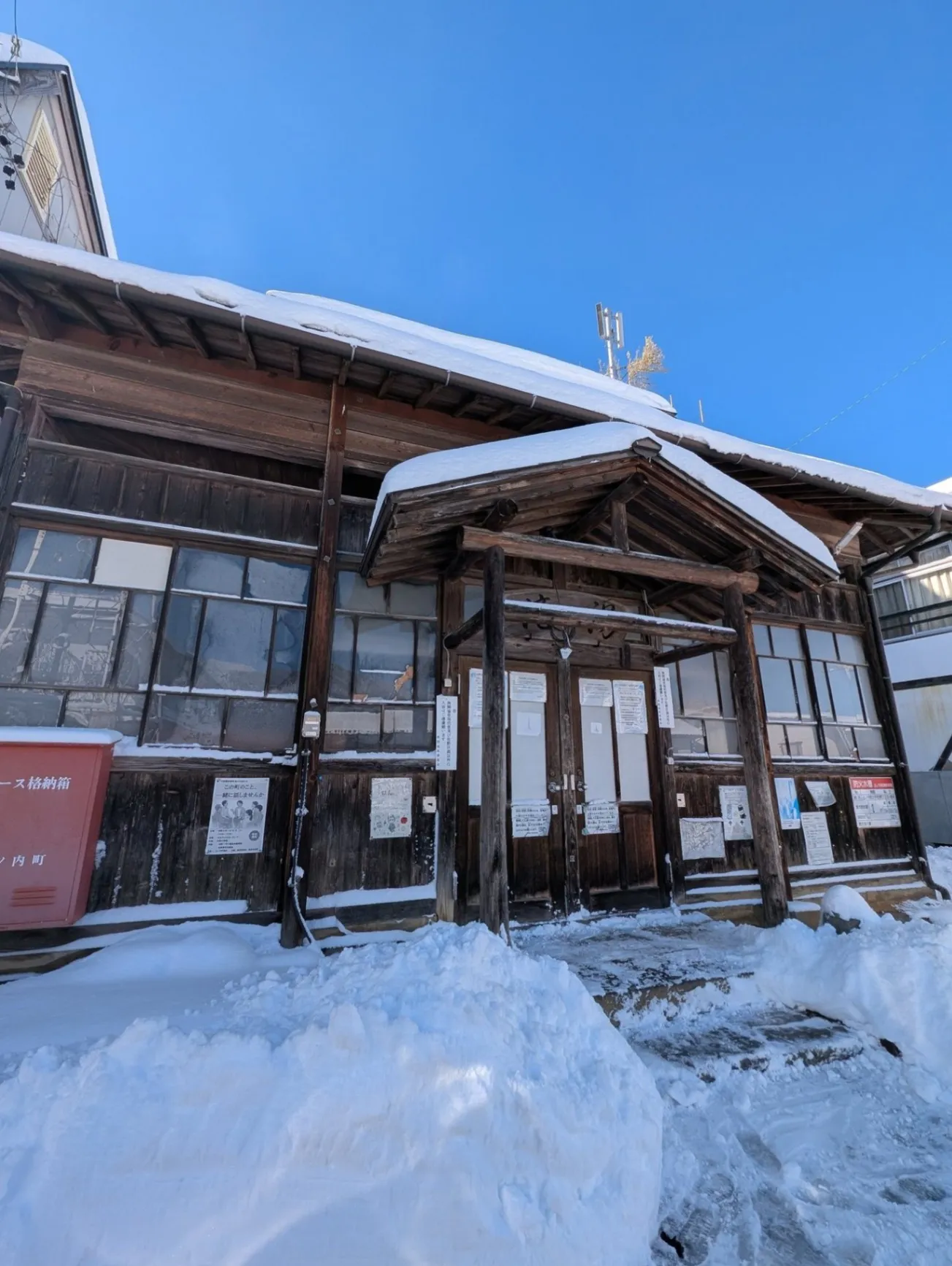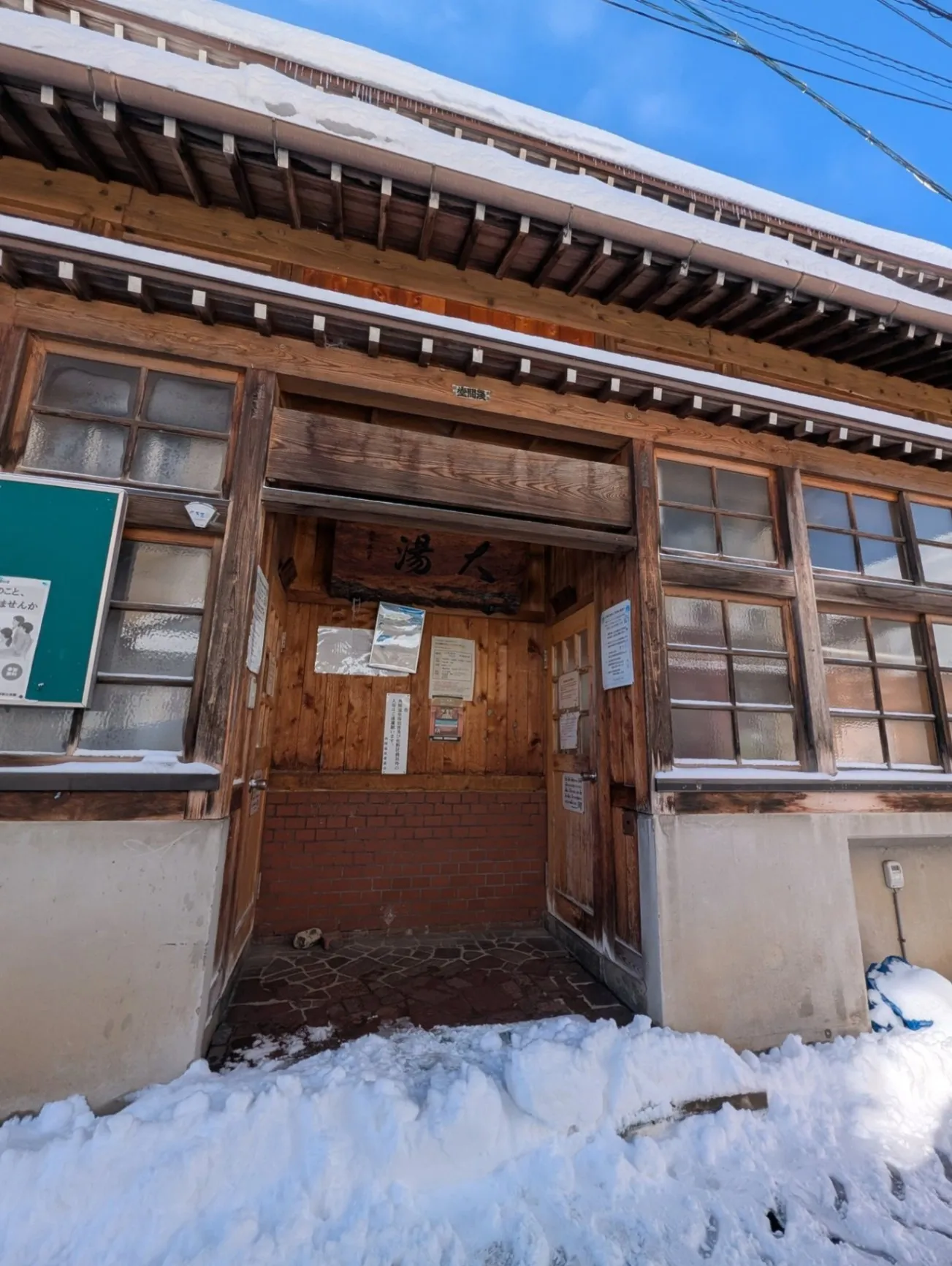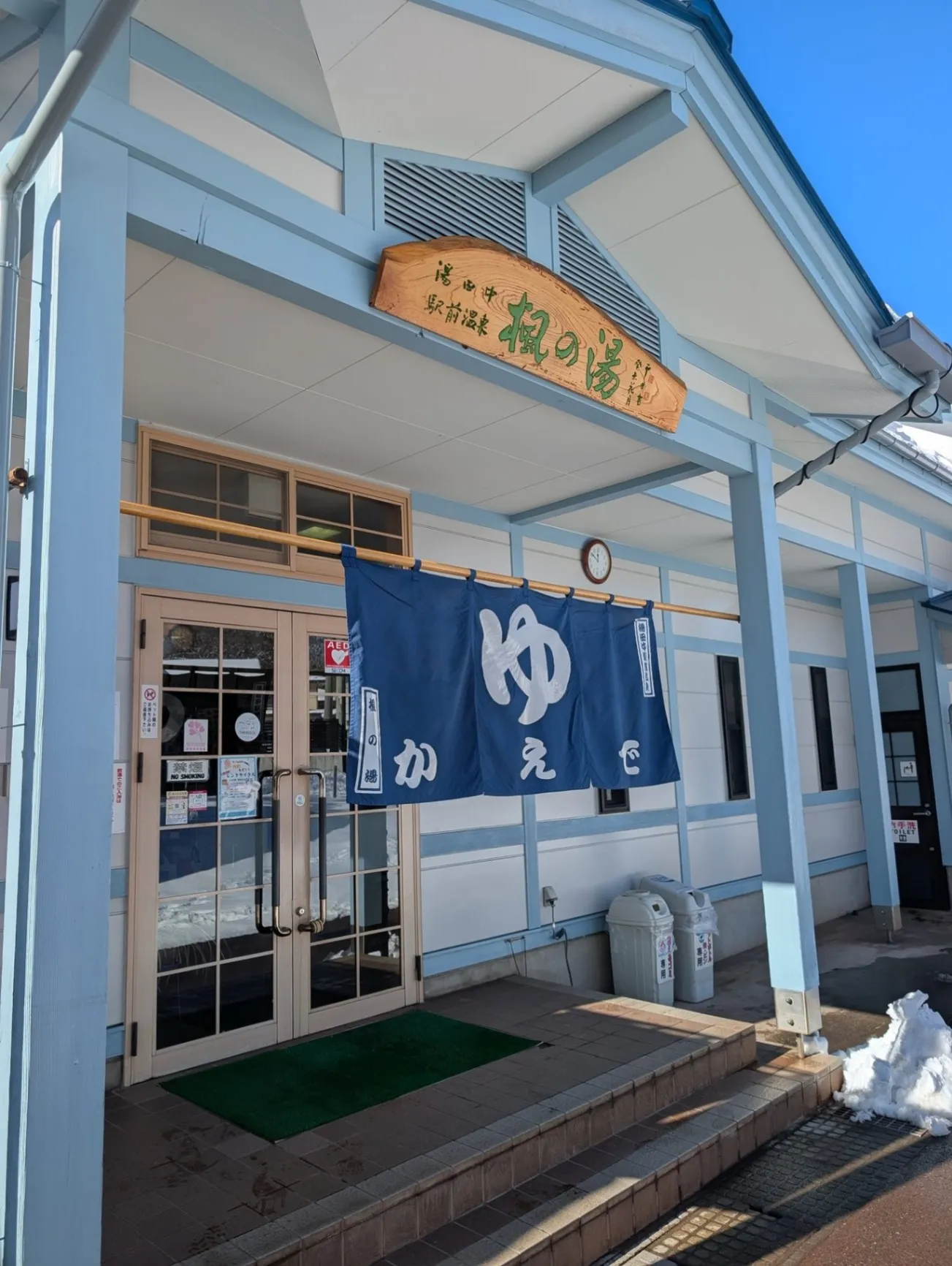Ishikawa Prefecture is home to the sacred Mount Hakusan, one of Japan's Three Holy Mountains, with numerous hidden hot springs scattered throughout its foothills. Combining the traditional hot spring culture nurtured by the Kaga domain's million-koku legacy with high-quality waters blessed by abundant nature, onsen enthusiasts from across Japan visit these treasured locations. This guide introduces hidden gems ranging from wild hot springs to secluded ryokan, showcasing Ishikawa's finest secret onsen.
1. Iwama Onsen Yamazaki Ryokan (Hakusan City)
Located on the north side of Mount Hakusan at an elevation exceeding 1,000m along a cliff-side forest road, this solitary inn is known as one of the most remote secret hot springs in the region. Nestled in the embrace of Mount Hakusan, one of Japan's Three Holy Mountains, this historic hot spring ryokan has operated as Shin-Iwama Onsen since the Meiji era.
Access to the inn is via the Hakusan Shirakawa-go White Road, and its deep mountain location offers a peaceful environment without televisions, ideal for those seeking quiet retreat. The hot spring water, at approximately 50 degrees Celsius from the source, flows 100% pure without any dilution, heating, or circulation - a luxurious natural experience.
The bathing facilities include separate gender indoor baths and one mixed outdoor bath with no roof whatsoever, offering an incredibly open-air experience. The mixed bath requires wearing yukatas, and at night, guests can bathe under a star-filled sky while gazing at the Milky Way. The water quality is sodium-chloride spring, effective for gastrointestinal ailments, rheumatism, and gynecological conditions.
Despite its remote mountain location, the inn offers premium dining options including A5-rank Hida beef steak plans, combining mountain delicacies with luxurious ingredients. Note that while there are wild hot springs and geyser towers along the Shin-Iwama Onsen route from Yamazaki Ryokan, the road to the original spring and geyser towers has been closed to general vehicles since a rockfall accident in October 2017.
- Spring Quality: Sodium-chloride spring
- Source-fed hot spring
- Baths: Indoor = 2 (1 each for men and women), Outdoor = 1 (mixed)
- Source Temperature: Approximately 50 degrees
- No dilution or heating
- Day-trip bathing: Available (Adults 700 yen, 11:00-18:00, closed Wednesdays)
- Accommodation: Available (From 10,800 yen per night with 2 meals)
- Operating Period: Late April to early November (subject to White Road access)
2. Nakamiya Onsen Nishiyama Ryokan (Hakusan City)
Located at the entrance of the Hakusan Nakamiya trail in Hakusan National Park at 700m elevation, Nakamiya Onsen has been cherished since ancient times as "Hato-no-Yu" (Dove's Hot Spring) and as a therapeutic spring for gastrointestinal ailments. Legend tells that Taicho Daishi, founder of Hakusan worship, discovered hot water bubbling from the riverbed after finding an injured white dove healing its wounds in the valley stream - a spring with over 1,300 years of history.
Nishiyama Ryokan is an established inn founded in 1869 (Meiji 2), and is a member of the Japan Secret Hot Springs Association. Despite being a five-story reinforced concrete building, the traditional wooden bathing facilities retain their charm, with separate indoor and outdoor baths for men and women. The view of the opposite mountains and beech forests from the outdoor baths is truly soul-cleansing.
The water quality is sodium-chloride and hydrogen carbonate spring with a source temperature of 63 degrees. It flows 100% naturally without any dilution, heating, or chlorination. The spring water is drinkable and particularly effective for gastrointestinal issues, with the morning onsen porridge having a unique flavor that has earned excellent reviews.
True to its mountain inn character, meals feature locally foraged mountain vegetables, river fish, and mushrooms prepared in traditional rustic style with heartfelt family hospitality. The location serves as an excellent base for visiting the World Heritage sites of Shirakawa-go and Gokayama while enjoying the spectacular views along the Hakusan Shirakawa-go White Road.
- Spring Quality: Sodium-chloride and hydrogen carbonate spring
- Source-fed hot spring
- Baths: Indoor = 2 (1 each for men and women), Outdoor = 2 (1 each for men and women)
- Source Temperature: 63 degrees
- No dilution, heating, or chlorination
- Day-trip bathing: Available (Adults 700 yen, 10:30-14:30)
- Accommodation: Available (From 16,650 yen per night with 2 meals)
- Operating Period: Year-round (closed late November to early April in winter)
3. Yukawa Onsen Ryuokaku (Nanao City)
A solitary inn nestled in the peaceful mountain village deep in Nanao City's mountains, certified by the Japan Hot Spring Heritage Preservation Association as an authentic secret hot spring. Located about 15-20 minutes by car from Nanao Station, following mountain roads through the Sakiyama district.
The most distinctive feature is that it contains Ishikawa Prefecture's only natural radon hot spring. The private source is sodium-calcium chloride spring (containing radon) with a water temperature of 46 degrees. Water flows directly from 600m underground through natural pressure at 100% source-fed flow to the bathtubs, with absolutely no heating, dilution, or chlorination.
With a mineral content exceeding 20,000mg - extraordinarily rare nationally, considering that even springs exceeding 10,000mg are uncommon - this concentration is exceptional. Yellow yu-no-hana (mineral deposits) float in the water, and the spring is said to have 21 therapeutic benefits. It's effective for various conditions including sensitivity to cold, burns, hemorrhoids, chronic skin diseases, and motor paralysis, and when consumed, it's beneficial for constipation.
The bathtub is small, accommodating only 3-4 adults, but this is intentional to maintain the high quality of the source water. The inn has maintained this approach since its founding, refusing to enlarge the bath to avoid diluting the spring's quality.
The inn achieved first place in the "Best Bath" category for ryokan in the Kinki and Hokuriku regions on the reservation site "jalan.net." The cuisine featuring both Noto's seafood and mountain delicacies is also highly regarded.
- Spring Quality: Sodium-calcium chloride spring (containing radon)
- Source-fed hot spring (natural pressure flow)
- Baths: Indoor bath (small tub)
- Source Temperature: 46 degrees
- No dilution, heating, or chlorination
- Day-trip bathing: Available (Adults 600 yen, 8:30-20:00, closed Tuesdays)
- Accommodation: Available (From 24,000 yen per night with 2 meals)
- Operating Period: Year-round
4. Fukaya Onsen Motoyu Ishiya (Kanazawa City)
An established ryokan founded in 1789 (Kansei 1) located along the Fukaya River in the Morimoto hills of northern Kanazawa. Despite being just 20 minutes by car from Kanazawa Station, it offers a retreat into a different world filled with mountain village tranquility. As the original spring of Fukaya Onsen, the inner parlor of Kanazawa city with its million-koku castle town heritage, it boasts a prestigious 200-year history.
The main attraction is an outdoor Noh theater built in the Taisho era, where visitors can experience traditional Noh drama dating back to the Muromachi period on a mystical stage nestled in the mountains. As an established inn affiliated with the Kaga domain since the Edo period, it preserves pure Japanese-style guest rooms, gardens where skunk cabbage blooms, and period furnishings in their original state.
The hot spring is a moor spring that has absorbed plant nutrients through ancient lignite layers over eons, characterized by its amber coffee-like color. The water quality is sodium-hydrogen carbonate spring, a hypotonic weak alkaline cold mineral spring. While the 12-degree source water requires heating, it contains abundant metasilicic acid with a smooth texture known as a "beauty spring." Legend holds that Miyamoto Musashi healed his wounds here.
Indoor and outdoor baths offer views of seasonal landscapes through large windows. Cuisine features kaiseki meals using Kaga vegetables and seafood from the Sea of Japan, including traditional Kanazawa jibu-ni (duck stew) and Noto beef.
- Spring Quality: Sodium-hydrogen carbonate spring (moor spring)
- Baths: Indoor bath, outdoor bath
- Source Temperature: 12 degrees (heated)
- Day-trip bathing: Available (Adults 1,000 yen)
- Accommodation: Available (From 25,300 yen per night with 2 meals)
- Operating Period: Year-round
5. Shiramine Onsen Soyu (Hakusan City)
A day-trip hot spring facility located at the center of the Shiramine district, which is designated as a National Important Preservation District for Groups of Traditional Buildings, at the foot of Mount Hakusan, one of Japan's Three Holy Mountains. In an area with a history as shogunate territory during the Edo period, this facility was built using local timber.
The most distinctive feature is the rare "pure sodium bicarbonate spring" found nationwide. Using 100% natural hot spring water, the quality is sodium-hydrogen carbonate spring. Characterized by a lotion-like viscous texture, the skin becomes silky smooth like silk after bathing, earning it the nicknames "silky skin bath" and "beauty bath."
The Tedori River flows below the main bathing area, and outdoor baths alternate weekly between rock baths and cypress baths. The outdoor baths offer views of mountain scenery through the four seasons, particularly spectacular during autumn foliage. The facility includes a sauna, with rest areas and massage chairs on the second floor, providing a relaxing space.
Shiramine is also known as a base for climbing Mount Hakusan, attracting many mountaineers. Combining a visit with a walk through the traditional townscape that retains historical architecture is also recommended.
- Spring Quality: Sodium-hydrogen carbonate spring (pure sodium bicarbonate spring)
- Source-fed hot spring
- Baths: Indoor bath, outdoor bath (rock bath/cypress bath alternating weekly)
- Sauna available
- Day-trip bathing only (Adults 750 yen, Elementary students 360 yen, Infants 260 yen)
- Business Hours: Weekdays 12:00-21:00, Weekends/Holidays 10:00-21:00 (Final entry 20:30)
- Closed: Tuesdays (or following day if holiday), New Year period
6. Hakusan Suginoko Onsen (Hakusan City)
A day-trip hot spring located along National Route 157 connecting Kanazawa with the Hakusan foothills. Legend tells that hot water sprang forth when someone dug following the guidance of Kannon (Goddess of Mercy) - a hidden gem known to those in the know.
The bathing area contains two small cypress tubs, creating a compact, peaceful atmosphere. The water quality is sodium-calcium sulfate-chloride spring (hypotonic, alkaline, high-temperature spring), completely natural 100% hot spring water with no dilution or heating whatsoever.
Excellent heat retention keeps the body warm long after bathing. Highly regarded for pain relief and relaxation effects, it attracts regular visitors from afar. Though modest in scale, it receives high praise from hot spring enthusiasts seeking authentic experiences.
At an affordable 460 yen for adults, it's beloved by locals. In a quiet environment surrounded by Hakusan's nature, visitors can enjoy pure hot spring water.
- Spring Quality: Sodium-calcium sulfate-chloride spring
- Source-fed hot spring
- Baths: 2 indoor tubs
- No dilution or heating
- Day-trip bathing only (Adults 460 yen, Elementary students 130 yen, Under elementary 50 yen)
- Business Hours: 10:00-20:00 (Final entry 19:30)
- Closed: Tuesdays
7. Meotoiwa Onsen Rakuyo (Hakusan City)
A day-trip hot spring facility along National Route 157. Named after the twin rocks "Meotoiwa" (Married Couple Rocks) standing approximately 10m high in the middle reaches of the Tedori River, which serve as the water source, boasting abundant flow volume. The facility name "Rakuyo" means fallen leaves, evoking harmony with nature.
This community-oriented hot spring hosts various events and features spacious bathing areas. The water quality is calcium-sodium sulfate spring with a refreshing smooth texture. Known to be effective for improving neuralgia, joint pain, frozen shoulder, post-illness recovery, and fatigue relief.
Popular with regular visitors returning from mountain climbing or skiing, it offers relaxing soaking experiences. The reasonable 400-yen price for adults is attractive, making it an approachable stop-in hot spring.
- Spring Quality: Calcium-sodium sulfate spring
- Baths: Indoor bath
- Day-trip bathing only (Adults 400 yen, Children 100 yen, Infants 50 yen)
- Business Hours: 15:00-21:00 (Weekends/Holidays 12:00-21:00)
- Closed: Mondays (or following day if holiday)
8. Senjo Onsen Seiryu (Hakusan City)
A hot spring facility offering meals, accommodation, and various activities along a tributary of the Tedori River. About 30 minutes on foot from the Sanpoiwa-dake trailhead, it's ideal for recovering from mountain climbing fatigue.
The spacious main bathing area offers views of seasonal scenery. The water quality is alkaline simple spring with pH 8.9, indicating high alkalinity, with colorless transparent water. The gentle texture removes excess oils and dead skin cells from the skin.
No scrubbing necessary - simply soaking slowly leaves skin smooth, beloved by people of all ages and genders. Accommodation facilities are also available for extended stays.
- Spring Quality: Alkaline simple spring
- Baths: Main bathing area
- Day-trip bathing: Available (Adults 500 yen, Children 300 yen, Infants free, 10:00-16:00)
- Accommodation: Available
- Closed: Tuesdays and Wednesdays (only Tuesdays during ski season)
9. Tedori Onsen Bird Humming Torigoe Kobo-no-Yu (Hakusan City)
A day-trip hot spring facility within a leisure complex featuring large barbecue areas, tennis courts, and restaurants in the lush mountains near Tedori Gorge. Good access at about 40 minutes by car from central Kanazawa.
The hot spring combines Tedori No. 5 and No. 6 springs, with water quality being sodium-calcium sulfate spring. Effective for various conditions including rheumatic diseases, arteriosclerosis, hypertension, neuralgia, joint pain, and frozen shoulder.
Equipped with sauna facilities offering comprehensive amenities. Ideal for post-recreation relaxation for families, with a large parking lot accommodating approximately 150 vehicles. Reasonably priced at 400 yen for adults.
- Spring Quality: Sodium-calcium sulfate spring (combined springs)
- Baths: Indoor bath, sauna available
- Day-trip bathing only (Adults 400 yen, Children 100 yen, Infants 50 yen)
- Business Hours: 12:00-21:00
- Closed: Wednesdays (or following day if holiday)
10. Iwama Geyser Tower Group (Hakusan City - Wild Hot Spring)
Located about one hour on foot along the Shin-Iwama Onsen route from Iwama Onsen Yamazaki Ryokan, this geyser tower group shoots hot water from the riverbed. Along an advanced Mount Hakusan climbing course, with wild hot springs visible along the riverside streams - a secret among secrets.
The geyser towers, reaching several meters in height, are natural formations created by accumulated hot spring minerals over many years, precious remnants of Mount Hakusan's volcanic activity. Multiple wild hot springs surround the area, offering rustic hot spring experiences.
However, following a rockfall accident in October 2017, the road to the original spring and geyser towers is closed to general vehicles. When visiting, always check the latest information and approach with adequate equipment and experience. While legendary among wild hot spring enthusiasts and onsen lovers, safety precautions are essential.
- Spring Quality: Sodium-chloride spring
- Wild hot spring (no facilities)
- Access: Approximately 1 hour walk from Yamazaki Ryokan
- Caution: Vehicle access restrictions in some areas, confirmation of current information essential
Conclusion
Ishikawa Prefecture's secret hot springs feature numerous high-quality springs blessed by the sacred Mount Hakusan. From member inns of the Japan Secret Hot Springs Association to communal baths beloved by locals, and even wild hot springs, diverse hot spring culture thrives.
Particularly around Mount Hakusan, authentic hot springs flowing directly from source without dilution, heating, or chlorination are abundant, earning high praise from hot spring enthusiasts. Rare spring qualities also exist, such as Yukawa Onsen, which has Ishikawa Prefecture's only natural radon-containing hot spring.
Like Fukaya Onsen in Kanazawa's inner parlor, some hot spring inns allow visitors to experience history and culture connected to the Kaga domain, combining hot springs with traditional Ishikawa culture. At hot springs like Shiramine Onsen within Important Preservation Districts for Groups of Traditional Buildings, guests can enjoy quality waters alongside classic Japanese landscapes.
Many hot springs have limited operating seasons, particularly around Mount Hakusan with winter closures and operations affected by the Hakusan Shirakawa-go White Road opening period (typically June to November). We recommend confirming the latest operating status with each facility before visiting.
Ishikawa Prefecture's secret hot springs are precious places where visitors can refresh both body and mind, away from urban hustle, embraced by nature and hot spring blessings. For travelers seeking authentic hot springs, Ishikawa Prefecture is undoubtedly a hot spring paradise worth visiting.
*Please note that while information is current as of the time of research, there may be errors or changes. Please verify the latest information through official websites and sources.
